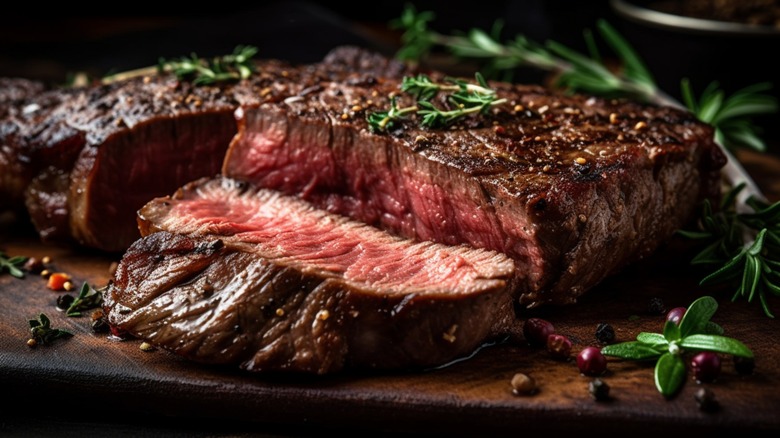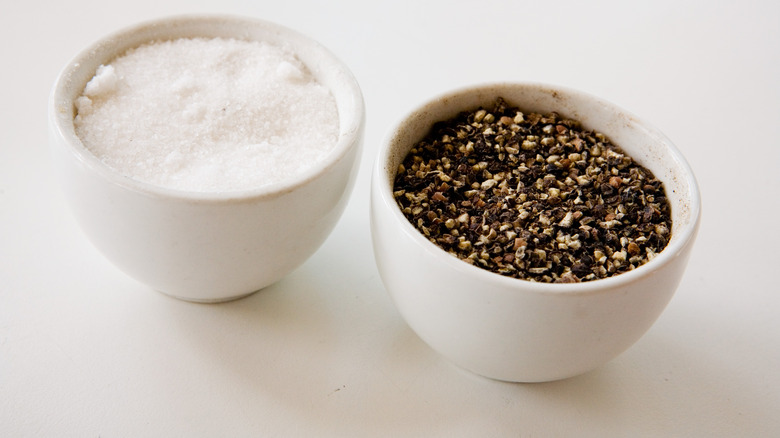When Cooking Wagyu, Go Light On The Seasonings And Let The Steak Shine
Wagyu beef, often hailed as the pinnacle of beef indulgence, possesses a unique combination of marbling and fat content that sets it apart in the culinary world. This exceptional quality renders it unnecessary to drown the meat in a myriad of seasonings or sauces. Instead, the intrinsic flavors of Wagyu are best revealed through a minimalist approach, allowing its natural richness to shine. Though to some it may seem senselessly boring, salt and pepper are all that is called for, beautifully supporting the deeply savory meat without obscuring it under layers of fussiness.
Wagyu, a term meaning "Japanese cow," refers to four breeds renowned for their exceptional marbling. This interweaving of fat throughout the meat is a result of the distinctive genetics and meticulous feeding practices employed by Wagyu farmers. The fat in Wagyu beef has a lower melting point than that of regular beef, giving it a velvety texture and unparalleled strength in flavor. This marbling is not merely a visual spectacle but a key contributor to the beef's succulence.
The fat content in Wagyu is evenly distributed, creating a luscious, buttery mouthfeel. As the meat cooks, the marbled fat melts into the muscle fibers, infusing them with moisture and flavor. This inherent richness eliminates the need for elaborate seasoning, as the beef itself becomes a symphony of tastes. The profound umami notes and tender texture make Wagyu a gastronomic experience like no other.
Simple and sublime no matter the cooking method
Whether grilling, pan-searing, or broiling, the innate flavors of Wagyu beef are best showcased with minimal interference. Grilling, a popular method, allows the fat to drip onto the open flame, creating a smoky infusion that enhances the meat's natural taste. Pan-searing, with its controlled heat, caramelizes the marbled fat, forming a delectable crust. Broiling, with its intense heat from above, achieves a roasted sear, contrasting with the tender interior.
While simplicity is the guiding principle, there is room for creative nuances. A subtle note of smokiness is not unwelcome with wagyu. Consider a smoked salt in place of regular kosher salt to season the meat before cooking. Post-cooking, a sprinkle of flaky finishing salt, such as Maldon sea salt, can elevate the sensory experience, adding texture and a burst of salinity that complements the beef's richness.
Further, experimentation with different types of pepper can ever so slightly influence the wagyu's final flavor profile. Black pepper is praised for its intensity, but the mild warmth of white pepper provides a more laid-back character that allows the beef to shine deeper. Similar to a finishing salt, pink peppercorns add a zesty fruitiness and feathery crunch that work wonders with melt-in-your-mouth wagyu.

